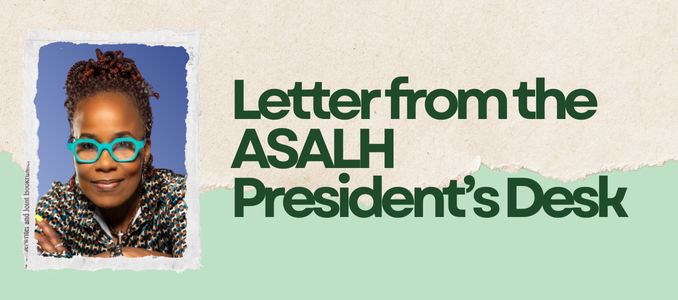
By Karsonya Wise Whitehead, PhD | As we begin to gently transition from the long days of summer into the hectic fall, I wanted to take a moment—on the eve of the 143rd official Labor Day celebration—to check in with you. This has been a very long summer, marked by uneasiness, despair, chaos, the release of multiple Executive Orders, and the rise of an authoritarian regime. We have also borne witness to the impact that the DOGE cuts have had (and will continue to have) on our community, particularly with the news that Black women lost 318,000 jobs from February to March. It has also been a very hard week grappling with the news of the first mass school shooting of the school year. Our hearts are heavy, but we continue to push forward, to pray if that is what centers us, and to work toward a better tomorrow for our children.
The Labor Day weekend has always been one of my favorite times of the year, as I come from a family that has labored tirelessly in the shadows of this country. I am the descendant of enslaved warrior people who chose everyday to survive and thrive in this country. They worked and prayed for the future that I am now living, and that I will fight with everything I have to keep. My maternal grandmother was one of the first Black pediatric nurses in South Carolina. She worked in the segregated Black ward in the hospital and would deliver most of the babies. She said that the women would specifically ask for her because when the white male doctor met with them, he would act as if he did not see them or hear their concerns. She would always raise one eyebrow when she said this, so that I would hear what she said and know what she meant.
My grandfather worked for the railways. He used to take us walking by the track, sharing stories about how we came from people who built tracks for trains that they were never able to ride, going into cities that they would never be able to visit. His body bore the evidence of a lifetime of physical labor: his back was bent, his knees always ached, and his hands were cracked and scarred. When I was in college, I used to sit on the porch, holding his hand and listening to him talk, and no matter where his stories started—childhood dreams, his siblings, the rising cost of food—they always ended with him talking about his job and how that work defined him. He was proud of the work he had done because it was for his family. He said that sometimes you work because it meets a need you have inside, and sometimes you work because you have eight kids and a wife who needs a car to get to the hospital. Dee Dee (as we affectionately called him) always stated his truth in plain language.
Labor Day makes me think of him laboring in the sun and of my grandmother laboring in the delivery room. I think of our ancestors laboring in the fields and of our community members laboring in offices, fast food restaurants, driving buses, stocking shelves, teaching classes, running businesses, and raising children. I also think of those who have recently lost their job and are currently looking for employment – my thoughts and prayers are with them. We have labored in this country and for this country, and we continue to labor.
|
Karsonya Wise Whitehead, PhD |
|
|
The Association for the Study of African American Life and History 301 Rhode Island Avenue, NW Suite 1508 Washington, DC 20001 202-238-5910 |

